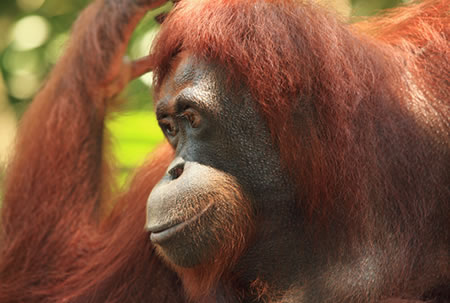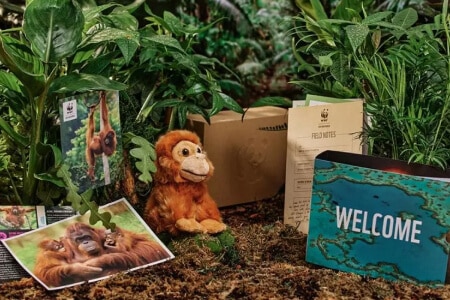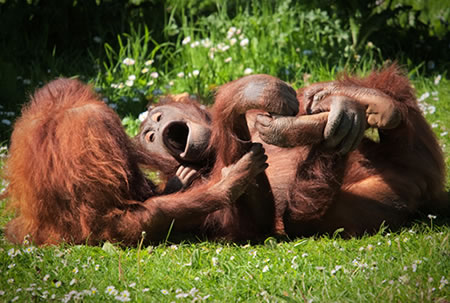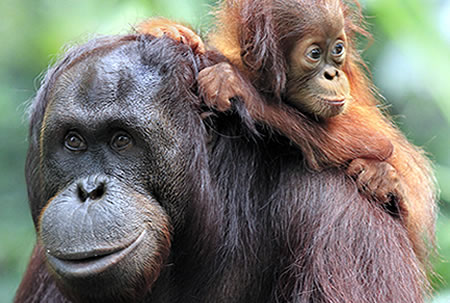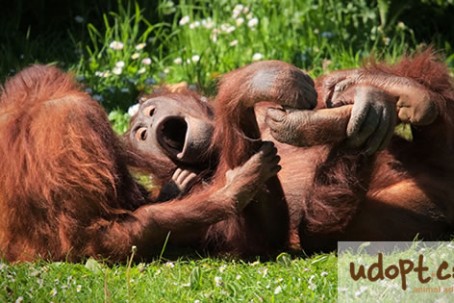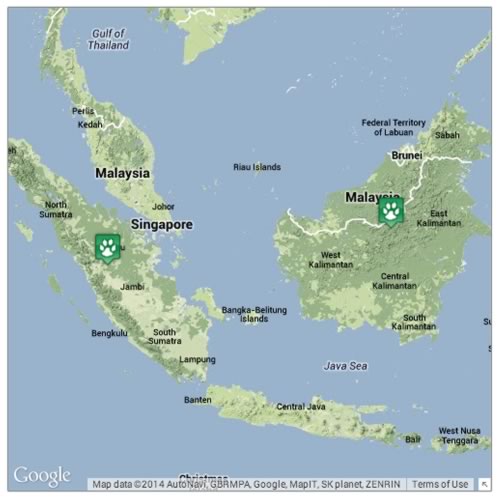Adopt an orangutan and receive
- A cuddly toy of your orangutan.
- An orangutan factbook together with bookmarks and stickers too.
- A certificate to frame your commitment to the WWF (printed on recycled paper).
- Two exclusive magazines: WWF’s ‘Wild World’ and ‘My Orangutan with news and updates for your adopted animal.
udopt'r choice
Orangutans are very athletic and fantastic climbers and love to spend their time up in the trees where they can watch over the comings and goings of the hot rainforest. Unlike other apes, they are happy to spend time alone, and only ever come into contact with others during mating season. Completely vegetarian, these amazing creatures make nests in trees as they very rarely venture onto the rainforest floor.
udopt it because
- Orangutan numbers have fallen by up to 50% across the globe in the last 60 years.
- Your kind donation will help WWF to extend protected areas of rainforest and work with local communities to help them manage their area through the sustainable use of natural resources.
- It’s great as a last-minute gift as the gift certificate can be printed or emailed immediately following payment.
- Adoption programmes start from as little as £5.00 a month.
>> Adopt an Orangutan Today
Adopt an Orangutan Gallery
WWF Adopt an Animal Information
Since 1961 WWF have been advocating and giving a voice to the animal kingdom. Recognised for their work internationally udopt is proud to feature WWF animal adoptions programmes. Adopt and you will receive a gift pack including a cuddly toy (or a personalised book with a Tiger adoption), a certificate plus lots more. You'll also get regular updates throughout the year.
https://wwf.org.uk/UK Registered Charity Number 1081247
Delivery information
By Post :
FREE Delivery Your gift pack will be delivered within the UK FREE of charge. Your package will be sent out within 2 business days, but please allow up to 5 days for delivery.
Last Minute Gift? :
Left it until the last minute? The good news is you can still receive a gift certificate to print or email up to the big day! You will then receive the gift pack within 10 days of ordering!
Did you know?
- Orangutans only live on two islands in the whole world – Borneo and Sumatra.
- They can live up to 45 years of age and can weigh as much as 120kg!
- The word orangutan means ‘Person of the Forest’ in Malay, the native tongue of Indonesia.
- Humans share an amazing 96.4% of our genetic make up with orangutans.
- Orangutans make umbrellas out of leaves when it rains and use sticks to get honey out of bee’s nests to stop them getting stung.
Our orangutan says…
I may be famous for monkeying around in trees, but in the last 60 years nearly half of my fellow orangutan friends have disappeared from the planet. People keep cutting down the areas where I live slowly leaving me with nowhere to call home. Please adopt me today and help WWF to protect my precious rainforests and teach our human neighbours that we depend on the trees to survive. Although it’s our home, we can still share it together.


